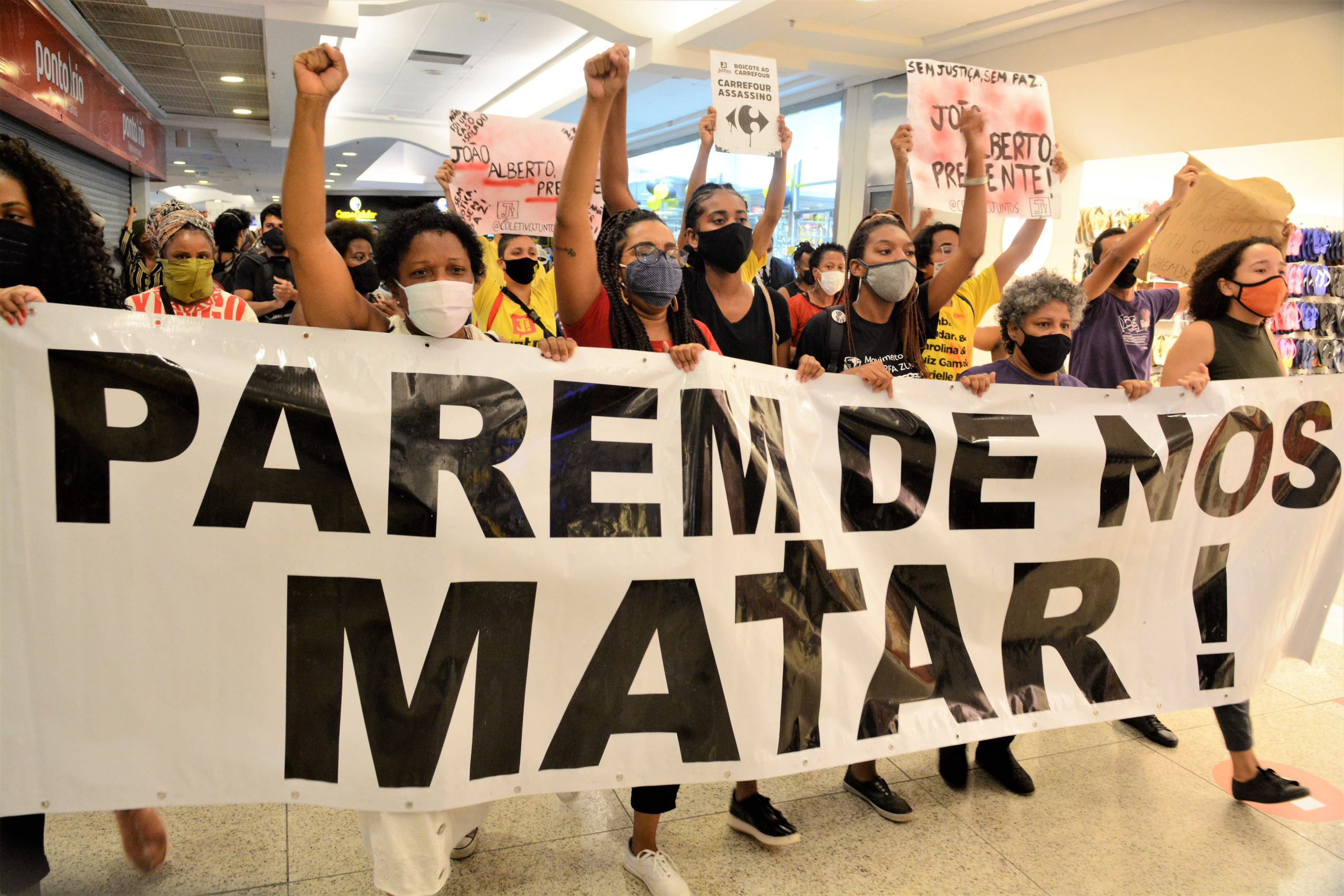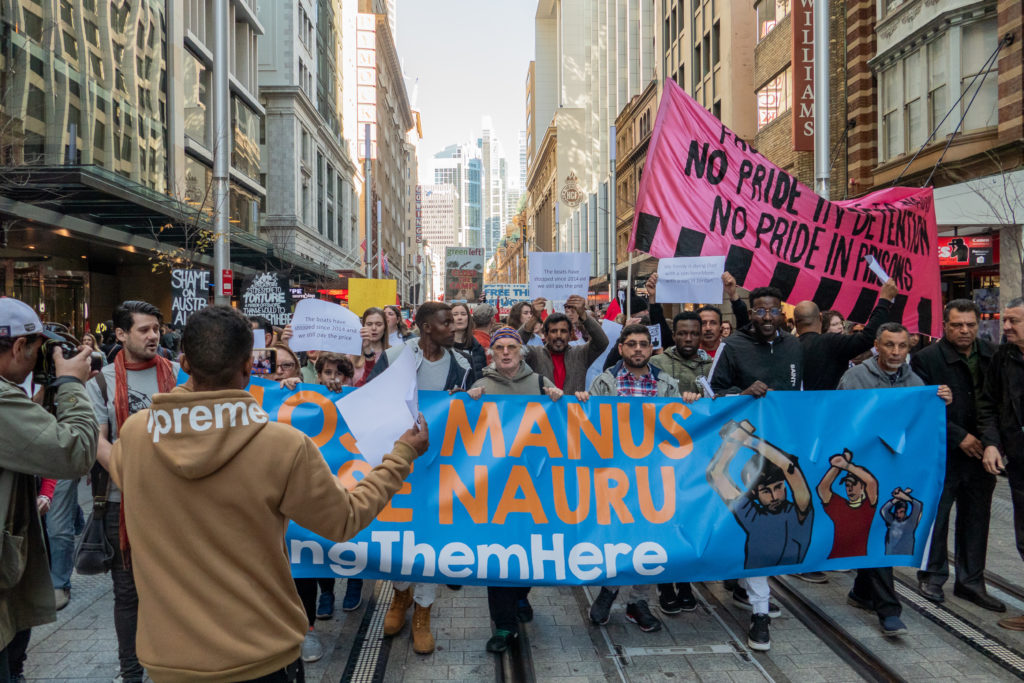Background
The Porgera mine is located in Porgera, Papua New Guinea, situated in the mountainous highlands of the country. An indigenous community, the Ipili of Porgera, live in the area surrounding the mine.
Security at this mine is provided by private security companies in addition to Papua New Guinea reserve police, who are engaged at the mine under provisions of a Memorandum of Understanding. The Memorandum of Understanding outlining the security agreement has not been made public by any mine or Barrick Gold officials. However, it is documented that the “reserve police” have the power of arrest, and are integrated into the regular police practices of Papua New Guinea.
Two Human Rights Watch reports, issued in 2005 and 2006, outlined several alleged concerns with policing practices in the area, including excess use of force, arrest and detention, and rape. Subsequent yearly reports did not show substantive improvements in the area of human rights; further, Human Rights Watch noted that reserve police received far less pay and training compared to regular police, and were “especially blamed for violence and other illegal acts.”
The Incident
119 women were allegedly subjected to sexual violence and excessive use of force by mine security and police. One of the victims alleged that she had been gang raped by five security personnel in September 2009. The alleged perpetrators were not brought to justice.
Legal Aspects
Court case
Eleven women and girls who were allegedly raped or sexually assaulted reached an out-of-court settlement as they were preparing to sue Barrick Gold in the United States, convinced they would be unable to find justice in Papua New Guinea.
After Barrick Gold completed an internal investigation in response to allegations of rape and sexual assault, Barrick Gold called the results of the investigation “disturbing” and terminated multiple security personnel for involvement in, or failure to report, alleged incidents of sexual assaults. Also as a result, two former Porgera employees were charged with rape, and a third former Porgera employee was charged with inflicting grevious bodily harm.
The International Code of Conduct
The International Code of Conduct requires that Personnel of Member and Affiliate companies take all reasonable steps to avoid the use of force, and if force is used, it should be proportionate to the threat and appropriate to the situation. (Rules for the Use of Force: paragraph 29; Use of Force: paragraph 30-32)
Further, the International Code of Conduct requires stringent selection and vetting of personnel, assessment of performance and duties, and training of personnel of the Code and relevant international law, including human rights and international criminal law.
Under the International Code of Conduct companies cannot allow their personnel to engage in or benefit from sexual exploitation, abuse, or gender-based violence or crimes. Security companies must require their personnel to remain vigilant for all instances of sexual or gender-based violence, and report these instances to competent authorities. (Sexual Exploitation and Abuse (SEA) or Gender-Based Violence (GBV): paragraph 38)
Meeting the requirements of the Code of Conduct can help private security companies and their clients ensure that private security personnel are qualified, trained, supported, informed, and responsible.
Guidelines on Preventing and Addressing Sexual Exploitation and Abuse
Resources on Preventing Sexual Exploitation and Abuse
Impact
In 2015, the lawsuit between 14 Papua New Guineans and Barrick Gold Mine, regarding alleged acts of sexual violence, was settled out of court. Under the settlement, the individuals received compensation under a “Porgera Remedy Framework” and payment in connection with their participation in the mediation process, which ultimately led to the resolution of the lawsuit.
Mark Bristow, president of Barrick Gold, hoped to build back trust with the community through a new deal with various features. First, the new deal raised Papua New Guinea’s ownership stake to 51%. Additionally, Papua New Guinea’s stakeholders would receive 53% of the economic benefits and guaranteed the government tax payments. The government would be guaranteed tax revenues, regardless of whether or not the costs of capital improvements to the mine have been recouped. Further, the deal gave Papua New Guinea the right to buy the mine at the end of 10 years at fair market value if Barrick fails to win back trust.
In 2012, Barrick Gold acknowledged the rape problem at the Porgera Mine and created the Porgera Remedy Framework, a non-judicial process organized by the company to hear claims of sexual violence.
Discussion
How can private security companies and their clients prevent sexual abuse and exploitation of vulnerable populations?
What can a private security company do to “win back the trust” of a community after an incident occurs?
Related Incidents
- Violent Repelling of Illegal Miners Leading to Litigation
- Violence and Sexual Assaults at Kakuzi Farms
- Escobal Mine: Violent Repression of Indigenous Protests
- Repression of the Protests Against the Rio Blanco Mine
Sources
- OHCHR | Report on the relationship between private military and security companies and extractive industry companies from a human rights perspective in law and practice
- Barrick Gold lost its ‘social licence’ in Papua New Guinea. This is the price it’s paying to earn it back | Financial Post
- Barrick Gold | Leigh Day
- Survivors Who Alleged Rape and Killing at Papua New Guinea Mine Pleased With Barrick Gold Settlement | EarthRights International
- Papua New Guinea: Serious Abuses at Barrick Gold Mine | Human Rights Watch
- Canada mining firm compensates Papua New Guinea women after alleged rapes
- 200 girls and women raped: now 11 of them win better compensation from the world’s biggest gold miner
Case prepared by: Madison Zeeman










